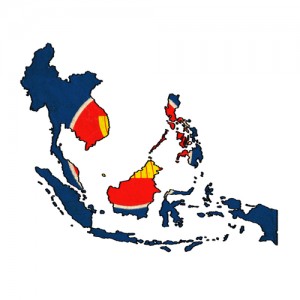Philippine News
PHL leads in efforts to curb slavery in ASEAN
MANILA — Department of Justice (DOJ) Secretary Leila M. De Lima on Tuesday lauded the country’s anti-human trafficking team for making the Philippines among the leaders in the Association of Southeast Asian Nations (ASEAN) region in combatting the menace of modern day slavery.
The Philippines has retained its Tier 2 ranking in the 2014 Global Trafficking in Persons (GTIP) Report issued by the United States’ Department of State Secretary John F. Kerry last June 20.
Tier 2 countries are those which do not fully comply with the minimum standards of the Trafficking Victims Protection Act (TVPA), but are making significant efforts to do so.
The Philippines has been in Tier 2 for four consecutive years since the start of the Aquino administration.
Previously, under the Arroyo administration, the Philippines has lagged in the Watch List for two consecutive years which put the country then in danger of losing some USD 750 million in terms of non-humanitarian and non-military aid, including the Millennium Challenge Fund.
In the ASEAN region, five countries are in Tier 2, namely Brunei, Indonesia, Singapore, Vietnam and the Philippines; three are in Tier 2 Watch List, namely Cambodia, Laos, and Myanmar; while two are in Tier 3, namely Malaysia and Thailand.
De Lima, Chairperson of the Inter-Agency Council Against Trafficking (IACAT), welcomed the outcome of the report and took notice its recommendations.
“Based on the Report, we are currently one of the leaders in the region in fighting trafficking in persons,” De Lima said.
“We intend to improve that standing by making sure that we eliminate some of the negative concerns and subscribe to most of the recommendations in the GTIP index,” she added.
The report noted in particular the need to increase the efforts to hold government officials criminally accountable for trafficking and trafficking-related offenses.
For the period 2013-2014, cases were filed against 99 government officials.
Out of the said number, 25 individuals were convicted administratively and/or criminally, majority of which resulted to removal from office.
“We will ensure that those who work with the government are not out there aggravating the problem,” De Lima said.
Also mentioned in the Report is the need to hold continuous trials to decrease the burden that lengthy, discontinuous trials places on victims.
De Lima stressed that the DOJ has already increased the number of prosecutors nationwide exclusively handling trafficking in persons cases to address this matter.
Also stated in the Report is the need to implement the Anti-Money Laundering Act (AMLA) in cases of trafficking and provide victims compensation through seized assets.
De Lima pointed out that the DOJ and the Anti-Money Laundering Council (AMLC) in cooperation with the University of the Philippines College of Law Development Foundation, and the American Bar Association Rule of Law, has already taken steps as early as 2012 to use the local anti-money laundering law to seize the assets of human traffickers.
“This initiative was institutionalized when President Aquino signed Republic Act No. 10365, which further strengthened the Anti-Money Laundering Act. Enacted on the first quarter of 2013, this amendment included trafficking in persons as a part of its predicate crimes,” De Lima added.
Another recommendation is to expand the use of victim processing centers.
De Lima highlighted the partnership that the government has created with foreign governments to establish victim processing shelters for victim care.
She underscored the start of the construction of the pilot victim processing center project with the Dutch Embassy as the government’s partner.
The construction started in the first quarter of this year when a team from the Kingdom of the Netherlands visited the country to share best practices in handling issues pertaining to trafficking in persons.
De Lima noted that majority of the recommendations defined by the US State Department focuses on victim protection and victim care.
“Our governing law against human trafficking requires tough prosecution but prosecution alone cannot end this problem,” De Lima said.
“We intend to bring more people into the table so we can find ways to prevent them being victimized and re-victimized, make sure that their abusers are dealt with, and allow the survivors to have the opportunity to have restorative care and a more comfortable life that they sought in the first place,” she added.
DOJ Undersecretary Jose Vicente Salazar, in charge of IACAT, said that the consecutive Tier 2 listings is a testament of government’s relentless effort to eradicate human trafficking and ultimately gaining a Tier 1 ranking which would mean that the government has done its duty of protecting the welfare of its citizens well.






















